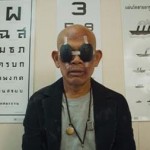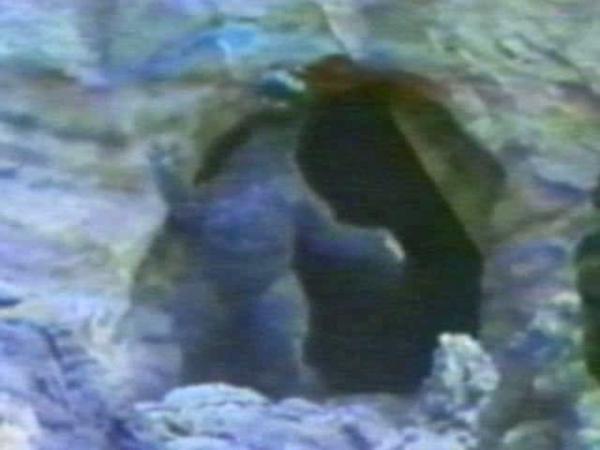Headshot
aka ฝนตกขึ้นฟ้า

2011![]()
Based on the novel by Win Lyovarin
Written and directed by Pen-Ek Ratanaruang

Pen-Ek Ratanaruang’s Headshot follows a hitman who awakens from a coma to find he is seeing everything upside down. It’s called a metaphor, one that Headshot has the main character explain to everyone in case no one bothered to get the symbolism. Headshot is a stylish but plodding action noir, as hitman Tul is drawn back into the world of being a hired gun, and we get background information that explains where he came from.
The strengths of Headshot is the unexpected directions the story goes, the fact it suddenly becomes a road movie during a carjacking scene, the characters who jump in and out of the tale and when they reappear, it’s almost as if they are completely different characters. Headshot is brilliant but hindered by inconsistent decisions on whether to trust the audience to figure anything out.

On that, I’m especially insulted by Headshot explaining that seeing everything upside down is a metaphor for seeing everything a new way. Thanks, reporter from the International Journal of Duh! It’s also not that surprising when a character is mysteriously dead in a movie where there are hit men and rival factions. But don’t fret, you get told twice what really happened, in case you missed it the first time. Headshot should have just let us figure it out, trusted that we knew enough of the genre to make the connections. Yes, it is safe to go off the reservations, and Headshot does make those attempts, but those are the times when we need to get a bit of information.
Headshot throws in some great cinematography and sets, my favorite is the gun battle in the dark forest in the rain, making the chaos of violence even more unpredictable and dangerous.


|


Hitman Tul gets shot as an assignment goes bad and wakes up months later seeing everything upside down. Through both current events and flashbacks we follow his life as he attempts to leave the assassination game and before he became one. Tul was the one honest cop who went after the corrupt officials, which just resulted in lawyers threatening after their bribes failed. Tul meets a sexy lady, Joy, that he spends a night of passion with, only to awaken in the morning to find her dead. Soon Tul is in jail, and the corrupt are free to go back to drug dealing and other nasty things. While incarcerated, Tul reads work by someone known only as the Demon, who has a philosophy that most people are evil and evil genes are dominant and will take over if not stopped.
Tul learns that Joy isn’t dead, it was all a ruse to spook him while he got framed, and she has no idea who hired her. Tul also gets a visit from the Demon, who is in fact mild mannered Dr. Suang, and offers Tul early release if he agrees to join his organization that kills corrupt people. Having nothing better to do, Tul accepts, and is even picked up by Joy – real name Tiwa. She’s an escort, and the two soon grow close, though she keeps her job as Tul sure ain’t pulling in the dough. Of course she winds up dead of a “drug overdose” while in current time Tul is captured and tortured to give up the name of who ordered the hit where Tul was injured.
Tul escapes captivity and carjacks Rin, having her drive most of the night far out of the city. Which gives them time to talk and the film time to take a leisurely pace for a while. Tul ends up retiring to a Buddhist compound, and things go smooth for a few months before the villains return guns blazing, Tul on the run again, coincidentally carjacking Rin a second time.
Soon all the stories begin colliding for a blood-soaked finale, but remember, we are on Headshot‘s time, not your time. It happens when it happens.
A running theme in all of these assassin films (beyond the bald assassin looking to get out of the business) is massive political corruption. All of them are critical of Thailand politicians (some way more than others) and there is a vague undercurrent that the assassins do a bit of good, because no one else is standing up to them. But on the flipside, Headshot shows that the violence only leads to more violence, causing endless cycles. Despite that, Headshot does not provide answers, all resolutions are only temporary and delay the consequences.
Despite my criticisms of Headshot not trusting the audience, the ending at least gives us a chance to figure things out for ourselves. If you don’t count how part of it is paralleled earlier in the film. Headshot keeps you with the action, even the slow pacing grabs you enough that you’ll still follow along. But the continued spelling out was annoying, and soured me on what should be a cool concept. Better luck next time.


Rated 6/10 (drawings, fish, gun, dog, monk, more drawings)
Please give feedback below!










2 Comments
india food tour
July 10, 2013 at 9:10 amSeems like an interesting movie. I just read the introduction just to prevent spoilers.
Tars Tarkas
July 12, 2013 at 2:02 pmIt is at least worth checking out, though i wasn’t as enamored with it as everyone else seems to be.